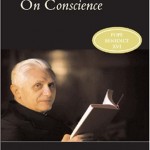Fausta is feeling depressed about the inability of our young adults to develop relationships of mature intimacy.
A young woman in college, having sexual encounters with dozens of men who are little more than strangers to her, yearns for a guy to at least say he is going to stay.
I find that extremely depressing: She wants not love, not intimacy (and forget about a spiritual component to a union – that hasn’t even crossed anyone’s mind). Just permanence. How sad.
She’s talking about this young woman, whose – indeed, sad – essay was choses from over 700 submitted by college students asked to write about love and relationships.
But noncommittal is what we’re all about
Siggy writes about love and the higher-self – the perfect union of love which is not simply a physical formula but one of the spirit. Two persons creating a single entity through both physical union and spiritual commitment.
Truly, it is an idea almost as old as civilization – monogamy, family, the unit, which blends two families and then extends out. Given the determined effort of the know-it-all boomers to “deconstruct” all of the worthless and bourgeois establishment norms that went before them – marriage and family were emphatically “out” and “repressive” – it is not surprising to see a generation unable to process the idea of commitment to anything other than “whatever there is today.”
“It’s your thing, do what you wanna do.” “If it feels good, do it.” “Make yourself happy,” and “the church of what’s happening now” have led us to:
Sometimes I don’t like them, or am scared of them, and a lot of times I’m just bored by them. But my fear or dislike or boredom never seems to diminish my underlying desire for a guy to stay, or at least to say he is going to stay, for a very long time.
And even when I don’t want him to stay — even when he and I find each other as strangers and remain strangers until we stop doing whatever it is we are doing — I still want to believe that two people can meet and like each other well enough to stay together exclusively, without the introduction of some 1960s rhetoric about free love or other noncommittal slogans.
But noncommittal is what we’re all about.
I while back I wrote:
We have now had several generations growing up with either missing parents or well-meaning but “barely-there” parents. A lot of what we learn regarding intimacy we learn from Mom and Dad and Grandma. If they’re barely in the picture, from whom will we learn it? The Nursery school teacher?”
[…]
intimacy has been defined downward, especially for our young girls, to mean little more than a “hook-up.” Children, especially girls, are being sexualized at ever-earlier ages…most of Buster’s generation grew up watching Friends and Sex in the City and thinking that this was what life was: a series of sexual encounters with no emotional attachments, no repercussions, no pain, no loss of oneself.
[…]
While the girls are untethered and confused balls of sexuality, too many boys are learning to see the girls not as young women to be respected, admired and (in a chivalrous sense) looked after, but as disposable spittoons for their disregarded and misunderstood sperm. I’ve heard my sons and his friends complain about it – that their generation is very screwed up about how to relate to each other, that too many of both gender have no idea what self-respect is, that they treat themselves, and each other, badly. They crave intimacy but have no idea how to achieve it when they’ve been raised to throw everything – their virginity, their standards, their drive to succeed (it’s not cool to get good grades) – their potential, their very selves away…This is not an overnight problem, it’s yet another fruit of the sexual revolution and the world-tilting sixties – the overcorrection to the 1950’s.
Dick Meyer, writing on the same issue and about our isolationism, in The Lonely States of America:
“I suspect…this study overlooks one simple contributing factor, the decline of real geographic communities — places where people grow up where their parents grew up, where non-nuclear relatives live near by, where friendships and acquaintances go across generations.
Explaining social isolation will be controversial, but not as difficult as repairing it.
Indeed. How do we repair it? All of the old social safeguards are no longer in place; instead of communities wherein live several generations of families and friends, everyone is transient and most of us have only a nodding acquaintance with our neighbors. Church? Secularists who correctly identify the problem do not like to consider that answer, but there might be some help there.
I like this bit from God and the World – by the man my son Buster refers to as “The Artist Formerly Known as Ratzinger”:
Man is created with a need for others, so that he may pass beyond his own limits. He needs to be completed. He is not made to be alone – that is not good for him – but is made to turn toward someone else. He must look for himself in the other person and find himself in him. … there follows the prophetic declaration that the man will on this account leave his father and his mother and will become one flesh with the woman. They will be one flesh with each other, one united human being. The entire drama of the two sexes’ need for each other, of their being turned toward each other, is contained within this declaration. In addition it is also said hat they are there in order to give themselves each to the other, so as to make the gift of new life in doing so, and then finally to devote themselves to this new life. In this sense, the mystery of marriage is contained within it, and basically the family is likewise envisaged.
He goes on like that – very politically incorrect, of course. But sensible.
If you don’t like the religious perspective, you can look at the trends in pop-culture to also see where defining down the differences between men and women have altered our perceptions of each other. Check out this post about the dearth of “women’s” films and strong, respected actresses:
These are women who remain iconic because — are you ready for this? — they command the respect of both men and women. Command, not demand with tired lectures. They also don’t cuss like sailors, show us their tatas, or take whomever to bed in a fit of some twisted definition of empowerment at the expense of respect. For we men, these women were worthy of worship. Most of today’s female stars, on their best days, are mere objects of fantasy.
The comments section is especially good. And it even offers a solution of a sort, different from Pope Benedict’s but it might be a start. I recall that one of the biggest movies in recent years was My Big Fat Greek Wedding – which had for its heroine a real, imperfectly beautiful woman, living in a real imperfect family, with embarrassing parents and nosy aunts and with involved neighbors in their ethnic enclave. To me, when the heroine’s WASPY future husband gets baptized in the Greek Orthodox Church and smiles at her, “I’m Greek, now,” and goes on to blend in beautifully with all the madness, lunacy, sorry and exasperated joy that makes up family – this is totally believable and real. And it is a clue as to how we might go on and go forward.
If religion and authority are – for some – too scary a means by which we may begin to repair this lonely mess we’ve allowed to develop in our society, then maybe the popular culture – which certainly profited from helping to tear our social fabric apart – may figure out that there is profit to be made in restoring it, as well.
UPDATE: The Curmudgeon Porretto says:
Damn it all people, learn from your mistakes!: Sex is much too serious an undertaking to be casual about it. You have to expose yourself to too many hazards — and the bacterial and viral ones are far from the worst.
Yes…and it is the only thin we can do that ultimately assists in creation and in the continuance of the world. Something that powerful really ought to be respected, don’t you think?










